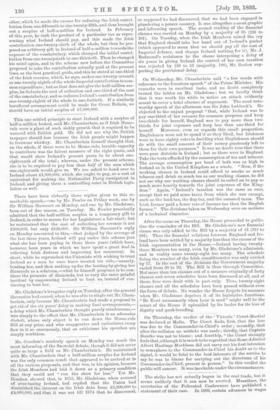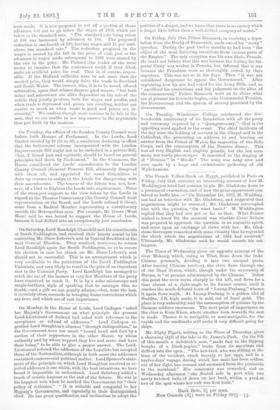The strike has not actually begun in the coal trade,
but it seems unlikely that it can now be averted. Meantime, the secretaries of the Federated Coalowners have published a statement of their case. In 1888, certain advances in wages 'were made. It is now proposed to cat off a portion of those advances, but not to go below the wages of 1888, which are taken as the standard rate. " The standard rate being taken at 100 was increased by advances to 140. The proposed reduction is one-fourth of 100, leaving wages still 15 per cent. above the standard rate." The reduction proposed in the wages is caused by the fall in the price of coal, just as the advances in wages made subsequent to 1888 were caused by the rise in the price. Mr. Pickard (the leader of the men) seems to imagine that the coalowners could, if they liked, make an artificial price for coal. That is, of course, impos- sible. If the Midland collieries were to ask more than the market price, they would simply drive the trade to Scotland and South Wales. The owners, who, it is to be noted, offered arbitration, agree that miners deserve good wages; " but both miner and mineowner are alike dependent on the sale of the article they jointly produce, both for wages and profits, and when trade is depressed and prices are receding, neither can receive as much as when trade is good and prices are in- creasing." We confess, though most anxious to be fair to the men, that we are unable to see any answer to the arguments thus put forth by the masters.



































 Previous page
Previous page